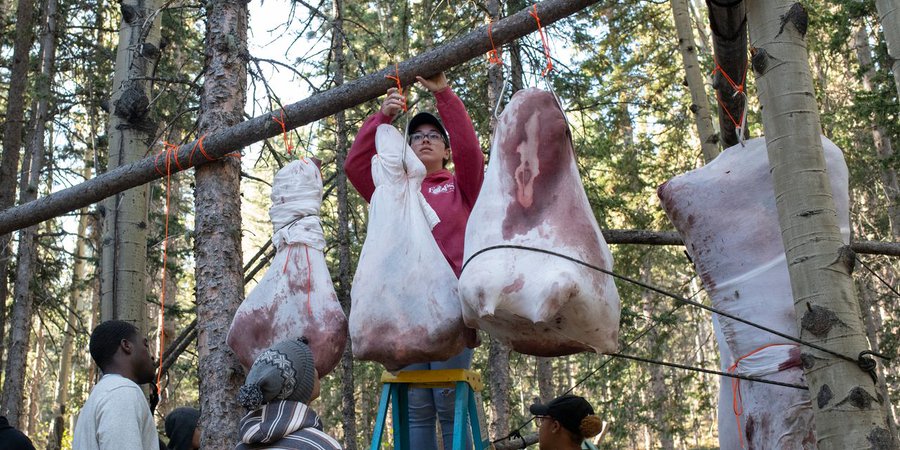Wolfgang Ramsay
Published: October 9, 2022
-Not The Bee
Every military wants to train its soldiers to be ruthless killing machines. The U.S. Military, meanwhile, is (not unreasonably) training our soldiers to be butchering machines, too:
U.S. Military Teaches Living Off the Land to Feed Future Warriors https://t.co/JEbaTmbMUW
— José Ancer 🇺🇸 (@ancerj) October 8, 2022
During two decades of conflict in Iraq and Afghanistan, the U.S. military has largely come to rely on bulky truck convoys or air resupply to provide soldiers not only bullets and fuel, but also every morsel of food, even at remote combat outposts.
Military leaders say such lengthy supply chains may not be workable in a potential future large-scale conflict and are preparing troops to be more able to live off the land. They are rolling out lessons on how to source all sorts of food, including meat, through local means.
“Local means,” in this case, means foraging and hunting. No MREs, no food concentrates — just whatever happens to be growing in the ground nearby, and/or whatever happens to be loping along on four legs within the vicinity.
It’s not at all a bad idea:
Special Forces often work in small teams in remote locations, where getting resupplied can be difficult. And the American gut sometimes isn’t prepared for local hygiene practices. Leaders realized they could bypass resupply headaches — and troops lost to dysentery — by teaching their cooks how to identify and purchase healthy livestock from local farmers, and then ethically slaughter and expertly butcher them. When those meats were combined with locally sourced items like rice and beans, Green Beret teams could be fed on the local economy.
It can definitely be difficult to eat local if you’re not, you know, local.




